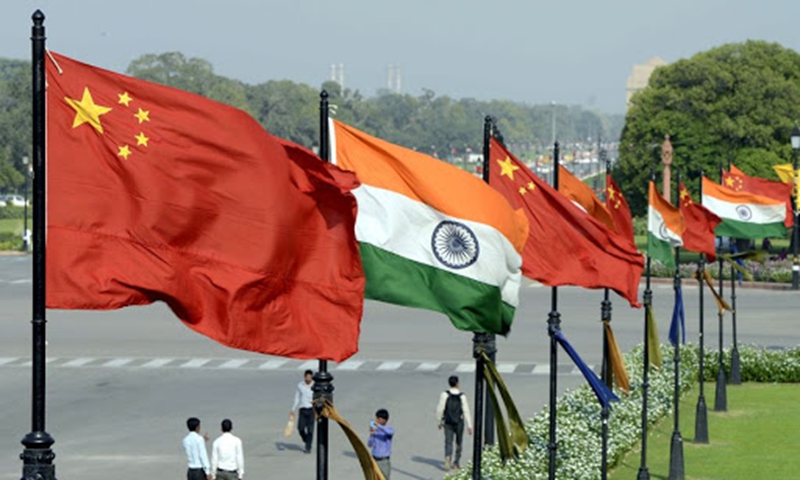
China-India
Indian External Affairs Minister Subrahmanyam Jaishankar's recent remarks blaming China for the current China-India border issue could undermine the mutual trust and affect the development of bilateral relations, Chinese analysts warned. They said that it's India, not China, that has disregarded and violated the bilateral pacts and encroached on China's territory.
At an event in Sao Paulo, Brazil on Sunday, Jaishankar said, "Right now, we are going through a very difficult phase mainly because we have agreements with China going back to the 1990s, which prohibit bringing mass troops in the border area. They have disregarded that. You know what happened in the Galwan valley," reported Indian media IANS. "That problem has not been resolved and it is clearly casting a shadow," he said.
Chinese analysts contended that the China-India border area has maintained stability and tranquility since the latest round of China-India Corps Commander Level Meeting on July 17, and it's India that has grossly violated the two pacts signed by the two countries in the 1990s.
China and India signed two agreements on the border issue in 1993 and 1996 respectively. Taking the Agreement on the Maintenance of Peace and Tranquility along the Line of Actual Control (LAC) in the China-India Border Areas signed in 1993 as an example. India has frequently crossed the LAC and encroached on China's territory not only in Doklam, but also in the Pangong Lake area and the Galwan Valley in the past 20 years, and seriously violated the agreement which said no activities of either side shall overstep the LAC, Zhang Yongpan, a research fellow with the Institute of Chinese Borderland Studies under the Chinese Academy of Social Sciences, told the Global Times on Monday.
The 1993 agreement mentioned that each side will keep its military forces in the areas along the LAC to a minimum. From the perspective of maintaining friendly relations, China has not deployed large numbers of military troops in the LAC area, while in contrast, India has been rapidly expanding its military power along the LAC since the end of the last century, Zhang said.
Both the 1993 and 1996 agreements mentioned that neither side shall use or threaten to use force against the other by any means, but Indian troops crossed the LAC at the western section of the China-India border near the southern bank of Pangong Lake in September 2020 and outrageously fired warning shots at Chinese border defense patrol personnel. "This again exposed India's gross violation of the pacts," Zhang noted.
"Who is lying? Who has disregarded and violated the pacts since 1993? Obviously it's India, not China," Zhang said.
Qian Feng, director of the research department at the National Strategy Institute of Tsinghua University in Beijing, told the Global Times on Monday that Jaishankar seems to have turned a blind eye to the facts in his recent comments, and if he continues to spread such remarks, it would do no good to the development of bilateral relations.
Jaishankar
said on Thursday that at the moment, the bilateral relationship is "going through an extremely difficult phase after what China did at the border," according to PTI.
Qian said it's of great importance that China and India work together to jointly tackle global issues amid complicated international conditions, and not let the border issue become an obstacle to bilateral relations.
Actually, China and India achieved remarkable results on the border issue since the 16th round of China-India Corps Commander Level Meeting in July. The border area is stable and military and diplomatic channels between the two sides are relatively smooth, Zhang said.
During
the meeting on July 17, the two sides agreed to stay in close contact and maintain dialogue through military and diplomatic channels and work out a mutually acceptable resolution of the remaining issues at the earliest time, according to a joint press release published by China's Defense Ministry .
Qian said that so far, the standoff between the two sides has cooled down with only areas near regions such as Dianjiao in Xizang still in a stalemate.
The stable and tranquil border area has also contributed to rapid economic and social development on China's border, Zhang said.
Zhang saw newly built houses and roads as well as large numbers of tourists when he visited Zanda county in Southwest China's Xizang Autonomous Region in July.
Zhang said he could not feel the influence of the Galwan Valley conflict when he visited in July the Aksai Chin region in Northwest China's Xinjiang Uyghur Autonomous Region, which has attracted lots of tourists.




